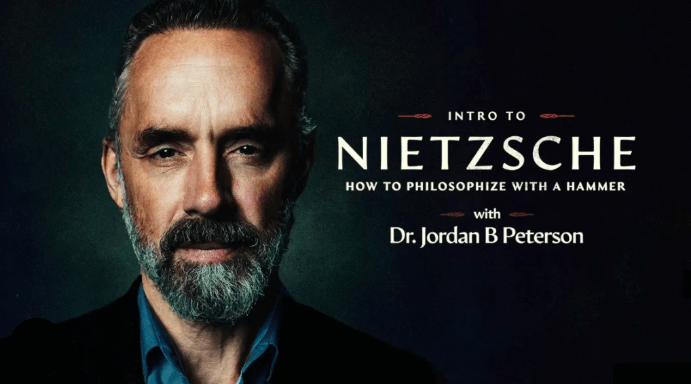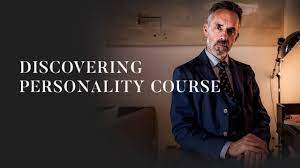A deep exploration of the life, philosophy, and enduring influence of Friedrich Nietzsche.
The course delves into key concepts such as the will to power, the critique of truth and morality, and the affirmation of life in the face of nihilism, while also exploring Nietzsche’s complex relationship with religion, academia, and the works of other thinkers.
File Size: 9.169 GB.
Format File: 8 MP4, 9 TXT.
Peterson Academy – Jordan Peterson – Intro to Nietzsche

In Introduction to Nietzsche, an eight-hour course, Dr. Peterson embarks on a deep exploration of the life, philosophy, and enduring influence of Friedrich Nietzsche. Set against the backdrop of the late 19th century, we examine how Nietzsche’s ideas challenged traditional moral and philosophical foundations, paving the way for new perspectives on the human condition. The course delves into key concepts such as the will to power, the critique of truth and morality, and the affirmation of life in the face of nihilism, while also exploring Nietzsche’s complex relationship with religion, academia, and the works of other thinkers. Ultimately, we are invited to confront uncomfortable realities, embrace necessary struggles, and cultivate the courage and gratitude needed to realize our full potential.
Lectures
1. Philosophical Foundations
In this introductory lecture, we delve into the life and philosophy of Friedrich Nietzsche, with Dr. Jordan Peterson, exploring his profound impact on Western thought and his unique approach to “philosophizing with a hammer.” Set against the backdrop of the dynamic late 19th century, characterized by rapid industrialization, scientific breakthroughs, and sociopolitical upheavals, Nietzsche’s ideas challenged traditional moral and philosophical foundations, paving the way for new perspectives on the human condition.
2. Nietzsche and Dostoevsky
In lecture two, we look at the life and thought of Friedrich Nietzsche, exploring his influential ideas on perspectivism, the critique of morality, and the affirmation of life in the face of nihilism. The lecture highlights Nietzsche’s complex relationship with academia, his creative genius, and the parallels between his philosophy and the works of Fyodor Dostoevsky, ultimately culminating in a tragic breakdown and untimely death.
3. Questioning Truth
In lecture three, we begin our study of Nietzsche’s Beyond Good and Evil, examining his aphoristic and ironic writing style as he questions the fundamental assumptions underlying the philosophical pursuit of truth. Nietzsche challenges the axiom that truth is inherently valuable and redemptive, asking whether untruth, uncertainty, or even ignorance might be preferable for happiness and well-being. The lecture explores these profound questions, highlighting the complexity of determining the value of truth and its relationship to the human condition.
4. Challenging Morality
In lecture four, we investigate Nietzsche’s provocative ideas in Beyond Good and Evil, exploring his challenges to traditional notions of truth, morality, and the nature of philosophical thinking itself. Nietzsche questions the existence of simple opposites, the role of unconscious instincts in shaping thought, and the idea that every philosophy is a disguised autobiography of its author, urging us to reexamine our assumptions about good and evil.
5. The Will to Power
In lecture five, we delve into Nietzsche’s critique of the axiomatic presuppositions underlying human thought and the notion of the “I” as the source of thinking. We explore Nietzsche’s idea that thoughts come unbidden, challenging the assumption that the subject “I” is the condition for the predicate “think.” This leads to a discussion of the unifying spirit or will to power that Nietzsche posits as a potential replacement for the concept of God. We also touch on Jung’s attempt to identify the commonality in narratives across cultures as a way to understand this central unifying structure. The lecture concludes by emphasizing that sanity is not merely an internal state but is related to one’s optimal embeddedness in coherent systems of hierarchy and relationships.
6. Courageous Trust
In lecture six, we dive further into Nietzsche’s philosophy, exploring the concept of the will to power and its implications for understanding human nature and morality. Dr. Peterson discusses how philosophical concepts are interconnected and evolve together, much like biological systems, and how the pursuit of truth often requires confronting uncomfortable realities. We also touch on the role of cynicism as a transitional stage between naivety and wisdom, emphasizing the importance of courageous trust in relationships and the necessity of allowing for overproduction and error in the pursuit of progress and mastery.
7. Embracing Struggle
In lecture seven, we navigate Nietzsche’s critique of the modern philosophical and societal tendency to prioritize security, comfort, and the abolition of suffering above all else. Nietzsche argues that this “leveling” impulse, driven by a misguided sense of compassion and egalitarianism, ultimately undermines the pursuit of greatness and the willingness to embrace necessary struggles. The lecture explores the importance of exposing oneself and others to optimal challenges as a means of fostering growth, courage, and the realization of human potential.
8. Views on Christianity
In this eighth and final lecture, Dr. Peterson delves into Nietzsche’s critique of Christianity and slave morality, exploring the philosopher’s complex views on religion, power, and resentment. We examine Nietzsche’s admiration for the Old Testament and classical Greek culture, contrasting it with his disdain for what he perceived as the “global infantilizing compassion” of Christianity. The course concludes by exploring the dangers of resentment and victimhood as political forces, and the importance of gratitude and voluntary service in the face of suffering.
Course Features
- Lectures 0
- Quizzes 0
- Duration 10 weeks
- Skill level All levels
- Language English
- Students 133
- Assessments Yes












